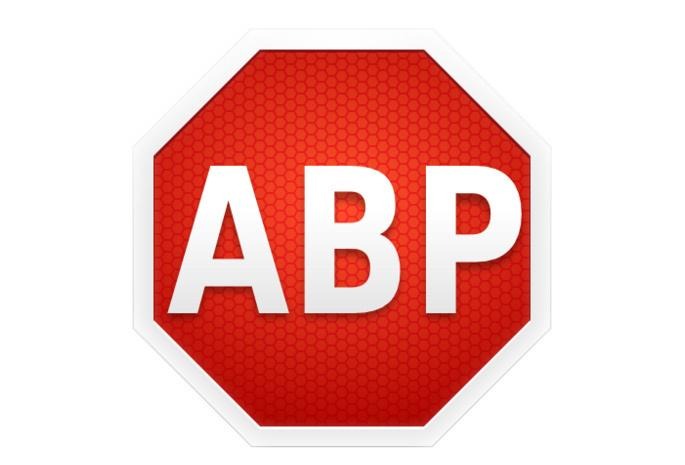Three's ad-blocking initiative could kill the internet
We've known since February that the UK wireless carrier Three has had plans to block advertising on mobile devices. Today the company outlined their strategy by announcing that they would offer 500,000 of their customers the opportunity to opt-in to a test of this service, which will happen sometime next month.
Three stated a few different reasons for deciding to block mobile ads. The first and foremost reason was that "advertisements count towards customers' mobile data charges, rather than advertisers shouldering the cost." This is actually a really interesting viewpoint, which I wanted to address from a different perspective.
Obviously, I write for a website that doesn't charge people a fee to read each article. SlashGear has never charged readers, as we've always wanted to provide news as freely as possible. Having written for this and other sites for the last 9 years, much of my income has been provided by advertising. So I clearly have some sort of stake when it comes to blocking advertisements.
The first thing I want to do is address this misconception that Three has about advertising and data costs. They believe that it is the responsibility of the advertiser to shoulder the cost of transmitting the advertisement, and not the end-user that views it. The advertisers do, in fact, pay for the data. But Three is just looking at one side of the equation.
There are two sides to every piece of data that is transmitted over the web. One is the server side, and the other is the client. When you loaded this page, your ISP tracked the amount of data that you downloaded to your computer, and that counts against your data cap (if you have one). At that very same time, our hosting provider also tracked the exact same amount of data (minus the ads), and it counts against our own monthly bandwidth allotment.
The ads are provided through the advertiser's server, and whenever data for an advertisement is transmitted, they also pay their hosting provider for the transmission.

In essence, every bit of data that is transmitted on the internet is paid for twice. Once by the party providing it, and once by the party downloading/viewing it.
So Three states that the customer shouldn't have to pay for the data used to download the ad, and this is one reason that they are blocking nearly all of them (the only exceptions are certain types of ads on social media). This makes absolutely no sense, when you understand how data is tracked and paid for by both ISPs and hosting providers, as explained above.
With Three's feature, they are removing the "burden" of the advertising data from their customers. Since this is the sole means of revenue for many websites, this means that the website's operators must shoulder the cost of every one of Three's customers that visit their site. Every one of Three's customers that opts-in to this program will be costing website owners money, every time they browse the web.
What really doesn't make sense is that Three seems to think that ads and websites are two separate entities. In reality, when you browse a website, you're getting a package deal. By clicking on a link, or entering an address, you're saying that you want everything that website is offering. You want the content, and with the content come the advertisements.
If you choose to browse a website without the ads, you are quite literally taking money from the website's owners. Site owners must pay for the bandwidth that you use to browse their sites, and if you've blocked their only source of income, they're losing money every time you click on a page.
"Brave" new browser wants to profit from every site you visit
Three is one small ISP in a vast world. While the things I've said may sound like I'm spelling doom for the entire web just because one ISP is going to block ads, it really won't. Sure, it will eat into revenue for the sites that those people visit, but there will be many other users who don't block ads, that still browse sites and bring in money.
But what if this becomes a trend? What if Comcast, AT&T, and Verizon all saw this as a good move, and offered it to their customers? Suddenly, tens of millions of people who didn't even know what an ad-blocker was are browsing the internet without seeing any ads. Websites could see more than half of their visitors bringing in zero revenue from advertisements.
I've worked for a number of other websites both large and small. And I can tell you honestly, that every single other site I've worked for would stop operating within a few months of that happening. In fact, I can guarantee that most websites you visit on any given day would stop operating. Big social media sites might be able to survive, and maybe a few other really big ones could bribe the ISPs to have their websites whitelisted. However, every independent website would close up shop.
The most common response to this line of thinking tends to be something to the effect of "the advertising industry needs to change" or "websites need to find a new business model." Sure, those are great lines to throw around to make yourself feel better when browse content without giving anything back to the people who provided it. However, they're no better than any excuse that people give for piracy of movies. Only instead of some giant studio eating those costs, it's small, independent website owners, and the people that write for them.
If you think you're hurting the advertising industry by blocking ads, you're only partially right. It does hurt, but most of the ads you see come from a handful of places, which are very large advertising companies with huge sums of money. You will bleed every website you love into extinction long before you begin to hurt those advertising companies.
As for finding a new business model, there are really three options. The current industry model is to provide free content to anyone who wants it, in exchange for placing advertisements on your site. This has worked for quite some time, and thanks to advertising revenue, the web is a much better place than it was a couple of decades ago.

The second business model is to charge for access to content. This is widely-regarded as a poor practice. If every website moved to this, then it would also kill most of them. If you're going to pay $4.99 a month for every website you visit, you're probably only going to pay for one or two, and hope that you can get all of your news there.
The third model is asking for donations. This can work for some websites with very loyal followings, but again, most people visiting a website aren't going to pay for it. If lots of websites moved to this model, they would also perish, because too many websites would be looking for handouts, and not enough people would be able to contribute.
I'm not currently aware of any other method to bring in money that is applicable to most sites. Millions of people are trying to find that new magical means of revenue that will carry the internet forward.
When you look at those three models for generating revenue for a website, you have two categories. The first, is advertising. The burden of paying for the content falls on the advertiser. They give the websites money that pays for the content, and the cost of distributing it over the internet. The user pays nothing, except for a miniscule amount of data, which they're already paying their provider for, to begin with.
The other category puts the burden of paying for the content on the viewer. You either have to pay a subscription just to see it, or a large number of people need to donate money directly to the site.
So by removing the burden of advertisement data from their customers, they're pushing the internet to a dark place. A place where the burden of paying for both content and distribution falls on those same customers. Customers lose, content distributors lose, and the internet as a whole loses.
